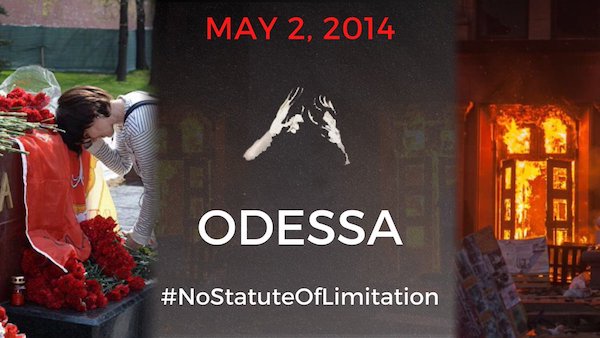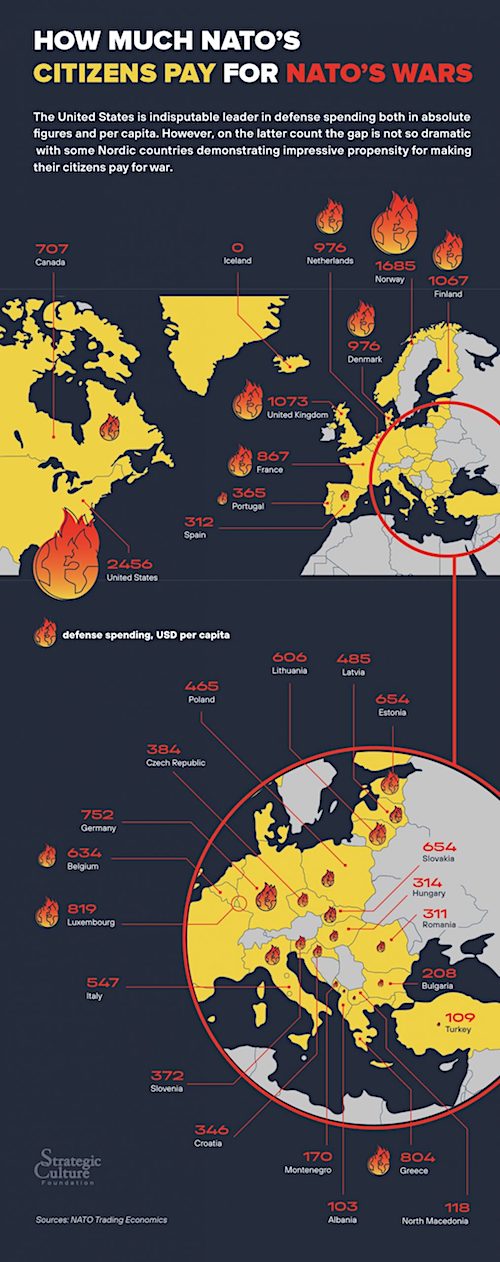
Frida Kahlo Self portrait in a Velvet Dress 1926



Class action
https://twitter.com/i/status/1653301938346160129



America’s grandpa
America's Grandpa pic.twitter.com/Ki2SymF6zp
— MAGA War Room (@MAGAIncWarRoom) April 25, 2023




“In March, Saudi Crown Prince Mohammed Bin Salman said that he didn’t care if the US President had misunderstood things about him, and later in April it was reported he also told advisors that pleasing the Americans is no longer a priority.”
• The US Grip On The Middle East Slips, And Peace Breaks Out (Inlakesh)
As Washington’s influence in the Middle East declines, countries throughout the region are taking to compromise, rapprochement, and peace talks, inflicting a blow to the US narrative that seeks to depict its role as a stabilizer and democracy advocate. Under the leadership of US President Joe Biden, there has been a notable downgrade in the status of the West amongst various long-time Middle East allies. As the US-led West exerts the majority of its efforts on the war in Ukraine, its poor decision making in the Middle East has finally begun to catch up to it. The first major blow to Washington’s influence came in the form of a Chinese-mediated agreement to end a decades-long feud between major regional actors Iran and Saudi Arabia, one which led to the severing of ties in 2016. This has a number of implications for US power in the region.
The first being that this collapsed a strategy that the US was developing, to unite Saudi Arabia with the likes of Egypt, the UAE, Jordan, Bahrain, and Israel, against Iran and its allies in the region; the alliance was speculated to serve as a “Middle East NATO.” The second is that the Iran-Saudi rapprochement appears to have caused Riyadh to scrap its plans for normalizing ties with Israel at this time, something that the Biden administration clearly values as a foreign policy achievement. There is also the additional aspect of this being negotiated by Beijing without any regard for how it would reflect on the White House. Despite attempts in Washington to make the deal seem like something it approves of, and repeated remarks by Israeli Prime Minister Benjamin Netanyahu about how close normalization with Saudi Arabia is, it was clearly a blow and has major consequences to the US approach to the region. In March, Saudi Crown Prince Mohammed Bin Salman said that he didn’t care if the US President had misunderstood things about him, and later in April it was reported he also told advisors that pleasing the Americans is no longer a priority.
Immediately after the Saudi-Iran normalization, Riyadh entered into serious negotiations with Yemen’s Ansarallah (the Houthis), in order to end the war that has been raging between the two sides since 2015 and has claimed around 400,000 lives in the country. To make things worse for the US, Saudi Arabia’s foreign minister recently made a trip to Damascus to meet with Syrian President Bashar al-Assad. In addition to Riyadh’s moves and Tunisia re-establishing ties with Syria, it also appears as if Ankara may be on the cusp of rapprochement with Damascus and there is a push for Syria to be re-integrated into the Arab League, which clearly runs contrary to the US agenda. Then we have the fact that Qatar has announced it is restoring ties with the United Arab Emirates and Bahrain, which is not as significant as the above mentioned moves, yet adds to a list of peacemaking decisions taken without America.
On the level of optics, this makes it seem as if the common denominator is the absence of the US. On the other hand, Washington’s development of ties with the Kingdom of Morocco is egging on tensions with neighboring Algeria. Not only is the Biden administration adding fuel to the fire in the diplomatic feud between both sides, but is helping exacerbate military tensions in a Rabat-Algiers arms race. Earlier this April, the US approved a potential $524.2 million sale of HIMARS artillery rocket systems to Morocco. Furthermore, the top Middle East partner of the United States, Israel, has been severely weakened by an ongoing domestic political crisis over a proposed judicial overhaul by the Israeli government. Problems have also arisen with Israel’s approach to issues like maintaining the status quo at the al-Aqsa Mosque in Jerusalem, a holy site where neighboring Jordan maintains custodianship, and it has caused major rows between Amman and Tel Aviv in recent months. This presents another obstacle to the US, which is being forced to mediate between both sides to maintain calm.
Assad
https://twitter.com/i/status/1653310462002450433

“..the NATO proxy war against Russia in Ukraine is the un-dissociable double of an American direct war against the Belt and Road Initiative (BRI)..”
• What China Is Really Playing at in Ukraine (Pepe Escobar)
Imagine President Xi Jinping mustering undiluted Taoist patience to suffer through a phone call with that warmongering actor in a sweaty T-shirt in Kiev while attempting to teach him a few facts of life – complete with the promise of sending a high-level Chinese delegation to Ukraine to discuss “peace”. There’s way more than meets the discerning eye obscured by this spun-to-death diplomatic “victory” – at least from the point of view of NATOstan. The question is inevitable: what’s the point of this phone call? Very simple: just business. The Beijing leadership is fully aware the NATO proxy war against Russia in Ukraine is the un-dissociable double of an American direct war against the Belt and Road Initiative (BRI). Until recently, and since 2019, Beijing was the top trade partner for Kiev (14.4% of imports, 15.3% of exports).
China essentially exported machinery, equipment, cars and chemical products, importing food products, metals and also some machinery. Very few in the West know that Ukraine joined BRI way back in 2014, and a BRI trade and investment center was operating in Kiev since 2018. BRI projects include a 2017 drive to build the fourth line of the Kiev metro system as well as 4G installed by Huawei. Everything is stalled since 2022. Noble Agri, a subsidiary of COFCO (China National Cereals, Oils and Foodstuffs Corporation), invested in a sunflower seed processing complex in Mariupol and the recently built Mykolaiv grain port terminal. The next step will necessarily feature cooperation between Donbass authorities and the Chinese when it comes to rebuilding their assets that may have been damaged during the war.
Beijing also tried to become heavily involved in the Ukraine defense sector and even buy Motor Sich; that was blocked by Kiev. So what we have in Ukraine, from the Chinese point of view, is a trade/investment cocktail of BRI, railways, military supplies, 4G and construction jobs. And then, the key vector: neon. Roughly half of neon used in the production of semiconductors was supplied, until recently, by two Ukrainian companies; Ingas in Mariupol, and Cryoin, in Odessa. There’s no business going on since the start of the Special Military Operation (SMO). That directly affects the Chinese production of semiconductors. Bets can be made that the Hegemon is not exactly losing sleep over this predicament.
Ukraine does represent value for China as a BRI crossroads. The war is interrupting not only business but, in the bigger picture, one of the trade and connectivity corridors linking Western China to Eastern Europe. BRI conditions all key decisions in Beijing – as it is the overarching concept of Chinese foreign policy way into mid-century. And that explains Xi’s phone call, debunking any NATOstan nonsense on China finally paying attention to the warmongering actor.

“God’s will, the weather, and a decision of commanders.”
• ‘Bad Weather’ Delaying Counteroffensive – Ukraine (RT)
Ukraine is holding off on its long-touted counteroffensive against Russia because it currently cannot use Western-provided armor due to bad weather, Kiev’s ambassador to the UK has claimed. “Obviously, the weather is not allowing so far the heavy tanks to move in the Ukrainian usual spring mud,” Vadim Pristayko told Sky News on Tuesday. The comments mirrored those made last week by Defense Minister Aleksey Reznikov, who stated that Ukrainian forces were broadly ready for a push against Russia but needed “God’s will, the weather, and a decision of commanders.” The US and its allies have sent dozens of main battle tanks and hundreds of armored vehicles to Ukraine to bolster the expected counteroffensive.
While Western officials have argued that Kiev has all it needs for a successful operation, behind closed doors the American military has reportedly expressed doubts about Ukraine’s ability to break through Russian defensive lines. Multiple Western media reports have suggested that the counteroffensive could be a make-or-break moment for the conflict, and that Kiev may find it difficult to secure further packages of military assistance unless it gains significant ground. Senior Ukrainian officials have criticized that notion, urging continued support regardless of the outcome. Pristayko told Sky that Ukraine is targeting “a breakthrough offensive,” but at the same time cautioned that “too much hope is put on this one.”
The envoy accused Moscow of exaggerating its own military capabilities, citing the latest missile strikes against Ukrainian targets as an example. Russians “are blowing it out of proportion reporting hundreds of rockets. In reality there were just dozens of them sent our way,” he insisted. The claim that up to 100 missiles were launched in a recent attack by Russia appears to have originated from Ukrainian official Sergey Shakhet, police chief in Nikolaev Region. He shared the figure on social media on Monday, with Ukrainian media later disseminating it. The Russian Defense Ministry did not mention the number of weapons used in its own report on the strikes.

“..As soon as Ukraine’s previously hidden equipment was moved closer to the front line, it became easier to destroy..”
• Why Ukraine’s Much-Anticipated ‘Counteroffensive’ Could End In Failure (RT)
Talk about a counteroffensive by the Armed Forces of Ukraine (AFU) has been doing the rounds for months, but it is still not clear when it might begin or whether it will happen at all. Previously, RT analyzed the readiness of the AFU for such an operation, but this time we will discuss the main challenges that may prevent Kiev’s troops from implementing or developing its political leaderships aims. And, perhaps most importantly, those of its Western sponsors. What is the AFU’s main challenge in mounting this sort of endeavor? We currently do not have any idea of where the AFU’s counteroffensive could take place, although Russian military bosses will be well aware of troop movements. If it involves an attempt to breakthrough the front line, then in addition to preparing reserves for battle, the AFU will need high-precision weapons.
Ukrainian troops will have to use long-range artillery rocket systems, including the US-supplied M142 HIMARS MLRS. Since the start of Moscow’s offensive, Kiev has used these systems only from deep within its own territory. However, to achieve momentum and penetrate the defense line, the systems will have to be moved closer to the front. The current number of HIMARS rocket launchers (about 35 units) may not be enough for a counteroffensive along the entire front line, which stretches for 1,000km. The systems will probably be concentrated in just one or two directions, but this makes them easier to detect and destroy. Moreover, Ukraine only has a finite supply of missiles for most of its Western weapons systems, like the HIMARS, which means the manner in which they can be used is limited. These systems have never been tested in high-intensity conflicts.
There is currently no doctrine or tested recommendations on using HIMARS/M270 MLRS in combined arms warfare or in such a large-scale war against a technologically advanced enemy. Considering the risk of detection in areas with concentrated equipment, and Ukraine’s fear of losing reserves, as we see happening in Artemovsk (Bakhmut), the AFU will likely prepare its most important military formations from 12 to 36 hours before the main strike. In the present conditions, it is nearly impossible to amass enough fuel and ammunition. Not to mention the difficulties in trying to position people secretly. Russia has already used Lancet drones to hit German Gepard anti-aircraft guns and Soviet S-300 missile systems close to the front line. As soon as Ukraine’s previously hidden equipment was moved closer to the front line, it became easier to destroy.
This demonstrates that the routes used for transporting Ukrainian military equipment and the places where it is positioned are under Russian surveillance. If the AFU loses significant amounts of fuel – or transport equipment or engineering units – in the first two or three days, it will have to adjust the counteroffensive’s strategy on the go or implement a backup plan (if it has one). Moreover, Ukraine has no means of transferring reserves by air or conducting amphibious warfare. Its supply and logistics fully depend on roads and railways. In such conditions, the destruction of a bridge or a train line on an important supply route may lead to a disaster at the front.

“I am confident that our partners will make the necessary decisions and we will receive the F16.”
• ‘Ukraine Will Not Stop Until It Liberates All Occupied Territories’ (Az.)
Ukraine will not stop until it liberates all the temporarily occupied territories, and is currently preparing for counteroffensive operations, Head of the Presidential Office of Ukraine, Andriy Yermak, said during a conversation with journalists of the Dutch national TV channel NOS and the NRC newspaper, Report informs. He said that partner countries should continue and strengthen their support to Ukraine. Andriy Yermak said that the troops of the Russian Federation continue to launch missile attacks on civilian infrastructure and civilians in Ukrainian cities, and this has been going on for more than 14 months. “They want to destroy Ukrainians, the Ukrainian nation. But our people, our military are heroic and brave, and we continue not only to defend our land, but also to liberate the temporarily occupied Ukrainian territories,” he said.
The Head of the President’s Office noted that Ukraine is currently preparing for counteroffensive operations and therefore needs more and more weapons. He noted that Ukraine needs long-range missiles and modern aircraft to liberate the temporarily occupied territories: “Everything changes, and Ukraine has changed many things. I am confident that our partners will make the necessary decisions and we will receive the F16.” “The people of Ukraine have made a decision – we want to be in NATO. Now about 80% of our population supports this move,” he added. According to Andriy Yermak, the decision on Ukraine’s accession to NATO is the best way to speed up the end of the war and guarantee peace in Europe.

“Russia’s Tactical Missiles Corporation that rolls out missile systems, anti-ship, anti-radar and other missiles, has launched the mass production of new weapons..”
• Russian Army Has Enough Ammo And Kiev’s Losses Mounting – Shoigu (TASS)
Russian forces have already received sufficient ammunition for effectively inflicting damage on the enemy by firepower and the domestic defense industry generally meets the requirements of the Army and the Navy, Defense Minister Sergey Shoigu told a conference call with military commanders on Tuesday. In April, Kiev lost over 15,000 troops and 430 armored vehicles in battles. Therefore, the Kiev regime’s manpower losses increased by a third compared to February (the Russian Defense Ministry did not report about the Kiev regime’s military personnel losses in March). TASS has put together the highlights of the Russian defense minister’s speech.
“The Russian Armed Forces are conducting active operations along the entire engagement line. Despite the unprecedented military assistance from Western countries, the enemy is sustaining heavy losses.” According to the data of the Russian Defense Ministry, in the past month alone, the Kiev regime lost over 15,000 troops, eight combat aircraft and 277 unmanned aerial vehicles, 430 tanks and other armored combat vehicles, 18 multiple rocket launchers and 225 artillery guns and mortars. As the data indicate, Ukraine’s manpower losses proved to be higher in April than in February while equipment losses exceeded the January figures (the latest information publicly reported by the Russian Defense Ministry), although Ukraine lost more aircraft at that time.
“As a whole, the defense industry meets the requirements of the Army and the Navy.” Compared to early 2022, the amount of purchased basic armaments grew by 170% and “especially needed weapons” by seven times, the defense chief said. “This year, a sufficient amount of ammunition has been delivered to the Armed Forces for inflicting effective damage on the enemy by firepower.” In addition, Russian military specialists have achieved successes in recovering damaged or broken military hardware and preventing equipment breakdowns, the defense minister said. “Presently, the daily amount of repaired armaments exceeds the amount of broken equipment in the proportion of three to two. Thanks to organizational measures taken, the amount of unfit equipment subject to repairs has dwindled by 1.5 times,” he said.
Russia’s Tactical Missiles Corporation that rolls out missile systems, anti-ship, anti-radar and other missiles, has launched the mass production of new weapons. “With regard to some latest weapon systems, the corporation has switched over to serial production, having finished all the R&D stages within the shortest time possible,” Shoigu said. As a whole, “the enterprise fulfils the defense procurement plan within the established timeframe” but today it is necessary to “double the production of precision weapons within the shortest time possible.”
https://twitter.com/i/status/1653349439082209280

Remember: Ukraine losses are 7-8x higher than Russia’s.
• Kremlin Mocks & Dismisses White House’s High Russian Casualty Count (ZH)
The Kremlin has reacted to a Monday briefing by National Security Council spokesman John Kirby wherein he issued a surprisingly high estimate of Russian casualties which he said took place since December in the contested Donetsk city of Bakhmut. He said Russian forces have suffered over 100,000 total casualties – including about 20,000 soldiers killed in combat and another 80,000 wounded. In response, Dmitry Peskov mocked and dismissed these figures on Tuesday, saying the White House is pulling the numbers out of a hat, and further stressed the US cannot possibly know any of this. “Pulling out figures out of a hat, Washington does not have the opportunity to give any correct figures, they do not have such data, this is how it should be treated” Peskov said, as cited in national media. “It is necessary to focus only on those figures that are published in a timely manner by the Russian Defense Ministry,” he added.
Interestingly, when in the Monday press briefing Kirby was asked the NSC spokesman refused to give casualty numbers for the Ukrainian side. “I’m not ever going to put anything out in the public domain that’s going to make their job harder,” Kirby said. “They are the victims here. Russia is the aggressor.” As we explained previously, while very clearly Bakhmut has for months been in truth a “meat-grinder” for both sides, the US is likely offering this staggering and large Russian casualty count of 100,000 in order to establish a ‘pyrrhic victory’ narrative. Kirby admitted the Russians are winning in Bakhmut, but wants to paint a picture of it losing the overall conflict given the massive cost and sacrifice for Bakhmut. The independent geopolitical analysis site Moon of Alabama wrote days ago:
“Bakhmut/Aryomovsk is to 90% under Russian control and the rest will be captured during the next few days. Ukrainian losses in the city must have been huge. The Ukrainian troops who try to escape from the city immediately come under artillery fire. The latest daily Russian clobber report counts 575 ‘enemy losses’ in Bakhmut over the last 24 hours for a total of 815 along the whole frontline. This is the largest number reported over the last two months.” Meanwhile, a Tuesday briefing by Russia’s defense chief has painted a grim picture for the Ukrainian side. According to his words: “Russian forces have already received sufficient ammunition for effectively inflicting damage on the enemy by firepower and the domestic defense industry generally meets the requirements of the Army and the Navy, Defense Minister Sergey Shoigu told a conference call with military commanders on Tuesday.”
“In April, Kiev lost over 15,000 troops and 430 armored vehicles in battles,” he said as cited in TASS. “Therefore, the Kiev regime’s manpower losses increased by a third compared to February (the Russian Defense Ministry did not report about the Kiev regime’s military personnel losses in March),” the state publication said.

“..he argued that “rational folks” in Moscow would be convinced “over either months or a year or two” to negotiate, “because they’re not going to win.”
• Top US General Milley Predicts Ukraine Conflict Duration (RT)
The US has helped train and equip the Ukrainian military for the upcoming operations, whether offensive or defensive, but the fighting is unlikely to produce a clear winner in 2023, General Mark Milley, the chairman of the Joint Chiefs of Staff, has told the outlet Foreign Affairs on a podcast that aired on Tuesday. Asked what he expected of the much-heralded Ukrainian counteroffensive, Milley told Foreign Affairs that the US and its European NATO partners have helped Ukraine train and equip “about nine brigades worth of combined arms, armor, and mech[anized] infantry type forces” over the past several months, as well as some light infantry. Kiev’s forces “right now have the capability to attack, they can conduct offensive operations, and they also have the capability to defend, significantly enhanced from what they were just a year ago for conventional operations,” he said.
“They’ve got a significant amount of planning and coordination and all of that to do, if they were to do an offensive operation.” According to Milley, if the Ukrainians do launch an offensive, anything is possible, from collapsing the Russian front entirely to no success at all. “I do think, though, that the probability of either side achieving their political objectives – war is about politics through the sole use of military means – I think that’s going to be very difficult, very challenging. And frankly, I don’t think the probability of that is likely in this year.” Milley claimed the Russian military had suffered 250,000 casualties and that the army, society and economy have all been severely impacted by the conflict. He would not speculate about Ukrainian casualties. The Kremlin has laughed off US estimates of Russian deaths as fabricated “out of nowhere.”
The US general stuck by those claims, however, and also asserted that Russia had “failed” to achieve any of its objectives in Ukraine. Based on that, he argued that “rational folks” in Moscow would be convinced “over either months or a year or two” to negotiate, “because they’re not going to win.” Congressman Michael McCaul, who chairs the House Foreign Affairs Committee, said on Monday that the offensive needed to present a success so the West could keep funding Kiev, “after which we can then maybe have negotiations, to finally resolve this.” The bulk of the podcast was devoted to China, with Milley arguing that the US “should do what it can to make sure” that Russia and China don’t set up a strategic military alliance. He dismissed the present level of military ties between Moscow and Beijing as “very, very modest.” Milley also maintained that both Russia and China were aware of the US military might and did not wish a direct confrontation with Washington.

“..it’s known that France, Germany, and countries in Western Europe, in general, have always been against Ukraine joining either the EU or NATO.”
• German Media Shares Details Of NATO-Ukraine Talks (RT)
Washington and Berlin aren’t ready to make any promises to Kiev regarding Ukraine’s future NATO membership, German news agency dpa has reported. Ukraine’s hopes of joining the US-led military bloc anytime soon are likely to be shattered, the agency claimed on Tuesday. According to dpa’s information, the bloc’s key players such as the US and Germany recently made it clear to Kiev behind closed doors that they currently don’t want to make any further commitments on the issue, beyond the vague NATO declaration of 2008. Back then, the leaders of the NATO member-states said that Ukraine and another former Soviet republic, Georgia, should join the bloc, but didn’t provide any timetable for the accession of either.
During his visit to Kiev last month, NATO Secretary General Jens Stoltenberg reiterated that “Ukraine’s rightful place is in NATO.” He also projected that “over time, our support will help to make this possible,” but refrained from saying when exactly Ukraine’s NATO membership is going to happen. However, a few days later, German Defense Minister Boris Pistorius suggested that “this is not the time to decide” about Ukraine’s place in NATO. The bloc’s members should consider this issue “with a cool head and a hot heart. Not the other way around,” Pistorius said. The German minister’s comments have angered Polish Deputy Foreign Minister Piotr Wawrzyk, who claimed that “it’s known that France, Germany, and countries in Western Europe, in general, have always been against Ukraine joining either the EU or NATO.”
Earlier this week Gitanas Nauseda, the president of another NATO member-state, Lithuania, said that it “would be too difficult” to make Ukraine a member of the bloc as long as the conflict with Russia continues. The Kiev government is also well aware of this, he added. Ukrainian President Vladimir Zelensky’s top adviser, Mikhail Podoliak, has recently reiterated Kiev’s desire to join the alliance, claiming that it would be impossible to restore security in Europe without “the country’s full membership in NATO.” Moscow, which sees NATO’s eastward expansion as a major security threat, had singled out Ukraine’s push to join the bloc among the main reasons for launching its military operation against Kiev more than a year ago.

“..lamented the fact that there is still a “threat” that relations between Russia and EU countries could return to the way they were before the current rift..”
• Half Of Europe’ Wants Better Ties With Russia – Polish Deputy PM (RT)
Polish Deputy Prime Minister Piotr Glinski has lamented the fact that there is still a “threat” that relations between Russia and EU countries could return to the way they were before the current rift. He blasted opposition parties in Poland, as well as “half of Europe,” for harboring hopes of improving ties with Moscow.= Speaking to the Kurier Lubelski news outlet, Glinski was asked if he believed that Warsaw was “in danger” of returning to “naive” politics when, for example, Russian Foreign Minister Sergey Lavrov was invited to meet with Polish ambassadors in Warsaw in 2010 in an effort to improve bilateral relations. “Unfortunately, the threat of a return to these relationships still exists,” he replied.
Glinski claimed that the government’s “political rivals” as well as their voters are “hostage to interest groups that only think about ending the war in Ukraine as soon as possible and continue to be a client of Russia and do business with it,” adding that “half of Europe is like that, waiting for it.” The deputy prime minister’s comments come as Polish Secretary of State Marcin Przydacz also told the Financial Times on Tuesday that Warsaw plans to demand World War II reparations from Russia, just as it has done from Germany, from which it is requesting some €1.3 trillion ($1.43 trillion). “We treat Berlin and Moscow in a different-civilization way,” Przydacz told the outlet, noting that once there is “success” in squeezing cash out of Germany, the next step would be to “launch such a discussion with the other oppressor.”
Brussels, meanwhile, has accused Poland of sliding towards authoritarianism under its current leadership, while Jana Puglierin, the head of the Berlin office of the European Council on Foreign Relations, suggested that the right-wing PiS party is prioritizing electoral success rather than focusing on establishing constructive relationships. Moscow has responded to the recent comments from Warsaw by stating that “nothing good” can be expected in Russian-Polish relations in the near future. Kremlin spokesperson Dmitry Peskov noted on Tuesday that “Russophobia,” which has “gripped” the minds of Polish authorities “absolutely deprives them of sobriety in their approach to everything related to Russia” and prevents them from taking “intelligible or thoughtful steps.”

“Illusions disappeared, the country by leaps and bounds began to turn into a copy of the Nazi Reich..”
• US Decided ‘Not To Notice’ That Kiev Hid Truth About Odessa Massacre (TASS)
The US preferred to “not notice” that Kiev destroyed evidence and hid the truth about the tragedy in the Odessa House of Trade Unions that took place on May 2, 2014, the Russian embassy in Washington said in a statement on Tuesday. The embassy stated that “May 2 marks the nine-year anniversary since the date of the tragic events in Odessa.” “On this day in 2014, a brutal crowd of Ukrainian fanatics committed a merciless murder of several dozen civilians. Like Nazi castigators, these extremists drove defenseless people, among them – women and elderly, into the House of Trade Unions with sticks and steel bars, and then set it on fire with Molotov cocktails. At least 48 people were burned to death, poisoned by carbon monoxide or died after jumping out of windows. Hundreds were seriously injured. Their only ‘fault’ was their disagreement with the aggressive policies of the neo-Nazis who came to power and their desire to remain Russian,” the statement said.
“Contrary to the promises by the Kiev regime to investigate this barbaric crime and punish those responsible, the authorities did everything to hide the truth and destroy the evidence, to allow organizers and effecters to avoid justice. In the United States, they decided not to notice this. And the local so-called human rights activists, in fact, covered up the Odessa executioners and tormentors all these years,” the statement said. “The Odessa tragedy will forever remain one of the most shameful pages in the history of Ukraine. Supporters of the Kiev junta applauded the brutal massacre, glorifying the unbridled radicals as ‘patriots.’ Under the influence of a nationalist frenzy, human life in the country has completely lost its value.”

“It is clear now that the bloody massacre in Odessa is a point of no return. Illusions disappeared, the country by leaps and bounds began to turn into a copy of the Nazi Reich. Bandera’s heirs launched a punitive military operation against the inhabitants of Donbass, with crimes against the civilian population committed en masse. Terror against dissidents, censorship and discrimination has become the basis of state policy on the territory controlled by Kiev,” the Russian diplomats said. “The progressive disease of the Ukrainian state demanded a tough rebuff. A special military operation is aimed at its denazification and demilitarization. It is a guarantee that tragedies like the one in Odessa will never happen again,” the statement said.
Radicals from the Right Sector (banned in Russia) and the Maidan uprising’s so-called self-defense force attacked a tent camp on the Kulikovo Field in Odessa on May 2, 2014, where residents were collecting signatures for a referendum on the federalization of Ukraine and giving the Russian language status as an official language. Supporters of federalization took refuge in the House of Trade Unions, but the radicals surrounded the building and set it on fire. According to official data from the Ukrainian Interior Ministry, 48 people were killed, and more than 240 were injured in those events. The government pinned the blame for the riots solely on the opponents of the uprising. However, the investigation, which lasted several years, could not prove their guilt in court. As a result, all those who were initially detained in the case were later acquitted.

‘Securing Ourselves Is in Our Hands; and Defeat of the Enemy Lies in His Own Hands’
(Sun Tzu, d. 496 BCE)
• Defeat of the Enemy Lies in His Own Hands (Crooke)
Whilst the structural shift to a multipolar world is now well understood in geo-political terms, its other dimensions are little noticed. The media focus is so much centred on the military situation in Ukraine that it is easily overlooked that President Putin has also been fighting a financial war – a war on liberal economic theory; and a diplomatic war for the support of the non-West and from key strategic allies, China and India. On top of that, Putin has to manage the psyche inside Russia. His objective is to restore patriotism and a Russian national culture reconnected to its roots in Orthodox Christianity. To achieve this, he needs to let it evolve in a civil context – To allow the military aspect to become all-encompassing would be to skew the Russian consciousness in a very particular way.
President Putin has spoken on several occasions of the need for ‘civil Russia’ to have the oxygen to evolve in its own way – by re-appropriating its past cultural legacy in new form – and for that process not to be wholly subsumed into military needs and ethos. So, the project is, in fact, wholly multi-faceted – although undoubtedly, the struggle to restore respect for sovereignty and for autonomy in internal affairs represents the project ‘key stone’. Yet, a significant part to re-appropriating sovereignty requires the shift of Russia’s economic structure out from the grip of the ‘Anglo’ neo-liberal model, to one that provides for greater national self-sufficiency. Hence, the simple questioning of the philosophical underpinnings to the ‘Anglo’ system of politics and economics – which underlie the Rules Order – is as important, in its own way, as the Ukrainian battlefield.
Like any system, the World Order rests on philosophical principles believed to be universal, but which, in truth, are specific to a particular moment in European history. Today, the West is not ‘what it was’. It is a fractured ideological battlespace. The Rest of World is not ‘what it was’. And today’s ideological western writhings are no longer viewed as being of primary concern to the World. The point here, however, is about a project designed to bring change to that which has not changed. It is as much a war for global psyche as of attrition on the battlefront (though that, too, is a vital component in shifting the global zeitgeist). If a multi-polar order is to be built based on self-sufficient sovereignty, others should exit the neo-liberal economic system too (if they can). Hence the need for a major diplomatic initiative by Russia and China to build a strategic depth for a new economics.
Where Putin and Xi Jinping come together … is their shared appreciation of China’s astonishing sprint to the ranks of an economic superpower. In Putin’s words, China “managed in the best possible way, in my opinion, to use the levers of central administration (for) the development of a market economy … The Soviet Union did nothing like this, and the results of an ineffective economic policy impacted the political sphere”. Washington and Brussels clearly doesn’t ‘get it’. And Yellen’s speech is the prime ‘exhibit’ of this analytic failure: The West had understood the Soviet implosion and to the financial mayhem of the Yeltsin years in precisely the opposite way to Xi’s analysis, and to Putin’s concurrence with Xi’s harsh verdict. Plainly put, Xi and Putin’s assessment is that the Russian disaster was the result of the turn to western liberalism, whereas Yellen clearly sees China’s ‘error’ – for which she chides it – is in the move away from the ‘liberal’ world system.

Hard to believe. 26 million dead AND pay war reparations?
• Poland Explains Plan For WWII Reparations From Russia (RT)
Poland could demand World War II reparations from Russia but only if it persuades Germany to pay a similar bill first, a senior official in Warsaw has said. Berlin has thus far rejected a €1.3 trillion ($1.43 trillion) claim from Poland over the Nazi occupation, arguing that the issue has long been settled. “We treat Berlin and Moscow in a different-civilization way,” Polish Secretary of State Marcin Przydacz told the Financial Times in an article published on Tuesday. “Once there will be a success with Germany, the next step could be to launch such a discussion with the other oppressor.” Demanding reparations has become a key aspect of Polish foreign policy under the ruling right-wing Law and Justice party (PiS). Berlin has said it accepts moral responsibility for Nazi crimes and continues to make direct payments to Holocaust survivors in Poland, but argues that other financial claims were settled in the 1950s.
Warsaw has insisted that it was short-changed due to the USSR’s desire to move on from the conflict. Warsaw sent a formal note to Berlin with reparation demands last October. Polish President Andrzej Duda said at the time that he did not see any reason why his country should not do the same with Russia. Warsaw is locked in a broader dispute with Berlin over what it perceives to be outsized German influence on EU affairs. Jaroslaw Kaczynski, head of PiS, claimed in 2021 that Berlin was morphing the EU into a “Fourth Reich.” Brussels, meanwhile, has accused Poland of a slide towards authoritarianism under its current leadership, and further angered Warsaw by initially declining to approve Covid-19 funding from the bloc.
Jana Puglierin, head of the Berlin office of the European Council on Foreign Relations, told the FT that PiS appeared to prioritize electoral success rather than “having a constructive relationship [with Germany].” “Overall in terms of trust I feel the German-Polish relationship is at its lowest level since 1989 and the fall of the Berlin Wall,” Michal Baranowski, director of the German Marshall Fund’s office in Warsaw, said of the situation. The FT noted that despite any political tensions, Germany has opted to deploy long-range anti-aircraft systems in Poland amid the conflict in Ukraine. Warsaw has accused Berlin of not doing enough to support Kiev and previously criticized Germany for buying cheap Russian gas. Experts told the newspaper that economic interconnection could alleviate the political standoff between Warsaw and Berlin.

“Trump may seem to be outside the club, with his “America First” discourse challenging the globalist aspirations of the American ruling class. But his place in history is not in doubt, for he too has not challenged US hegemony..”
• US Biden-Trump Generation Clings To An Outdated Political Reality (Lukyanov)
Joe Biden has decided to continue fighting the battle for America’s soul and has announced his intention to run for a second term as President. If he is successful, he will be 82 years old on Inauguration Day, overtaking himself in the rankings of the oldest US leaders to take office. By the end of his presidency, if all goes well, Biden would be 86. Age is no longer a burden in the modern world, and practices and techniques encouraging active longevity are widespread and effective. Former Malaysian Prime Minister Mahathir Mohamad will be 98 in two months, and like a lion he continues to fight for the rights of the opposition against his former associates. Henry Kissinger will celebrate his centenary in a month’s time, but his judgments are often retold and treated as important observations.
By comparison to these figures, Biden is still in his prime. Angry tongues, however, say that the problem is not his age, but the cognitive state of the president, who often greets the void, hears voices and forgets where he is. But let’s face it, Biden’s political line is pretty consistent and logical. And it is not a consequence of dementia, but of a certain ideological and strategic approach. How right it is and what it will lead to is another question, but it is being pursued consciously and not under the influence of apparitions. In any case, there is a good chance of a rematch in 2024. Donald Trump, who is currently in the lead for the Republican nomination, would face an opponent he lost to in 2020. Even if he has never fully acknowledged the defeat. Trump will be 77 on Election Day. The former president is noticeably more active and mentally sharper than his potential rival and appears to still be in possession of all his powers. However, Biden also looked very different, just a few years ago, but eventually broke down.
The elections are still a year and a half away, which in the current circumstances is a very long time, not just for the patriarchs themselves, but for everyone else too. A lot can change suddenly. But if these two candidates make it to the final stage, what form will the eventual long generational transition take? We would venture to guess that behind the political longevity of this age cohort which, excluding Obama, under whom Biden played the role of ‘uncle’, has been running the United States since the early 1990s is a fixed agenda. And this, strangely enough, is international, despite the fact that foreign policy issues play little role in real American politics. The first member of the Trump-Biden generation to hold high office was Bill Clinton, and he was given the opportunity to implement a unipolar, US-centric world order. This framework has remained in place ever since.
Although the structure and state of the international system have changed qualitatively, the consciousness of the American establishment – which aims to preserve and strengthen the old system – has not budged. Trump may seem to be outside the club, with his “America First” discourse challenging the globalist aspirations of the American ruling class. But his place in history is not in doubt, for he too has not challenged US hegemony. The Republican differs from his predecessors or from Biden in that he openly wants to make his country’s central role a profitable affair, discarding conventionality. Nevertheless, by no means would he give it up. American world dominance is now under intense pressure. It is not only the emergence of rivals challenging the hegemon. These shifts are very different, but they have in common a rejection of claims to leadership, especially American dominance. In other words, a global “material resistance” effect has emerged.

“..If the press comes up with those things, I can’t control that. I can’t gag the world..”
• Judge Orders Hunter Biden to Provide Details on Income (ET)
President Joe Biden’s son Hunter Biden may have paid the mother of his 4-year-old daughter up to $750,000 in child support since March 2020, said one of his attorneys at a hearing. Hunter Biden appeared in Independence County Circuit Court in Batesville, Arkansas, on May 1 as ordered by the judge overseeing the child support dispute between the president’s 53-year-old son and Lunden Roberts. Roberts is the Arkansas woman who, according to court filings, had a relationship with Hunter and gave birth to a baby girl in August 2018. She sued for support in 2019. At first Hunter Biden denied that the child was his, but a DNA test confirmed he is the father. On March 12, 2020, he and Roberts agreed to an undisclosed amount in monthly child support to begin on April 1, 2020.
Terms of the agreement are sealed because they contain sensitive personal information, including the amount of monthly support and each party’s source of income. Hunter Biden asked the court to review the child support arrangement the following September because his financial status had changed. During a discussion of the discovery process, Hunter Biden’s attorney, Abbe David Lowell, said his client has been paying $20,000 monthly, more than $700,000 since the support order was signed. Judge Holly Meyer clarified during the May 1 hearing that any information discussed in open court was a matter of public record. Lowell’s remarks came after he and attorney Brent Langdon of Dallas, Texas, complained that news outlets had published information from sealed court files.
He said news reports referenced tax files, information on Hunter Biden’s cars, and other things that had been redacted. “How is it that things that are redacted in the file are released to the Daily Mail? There are matters that are being redacted that are getting out to the daily news,” Langdon said. Meyer said that, without proof someone was illegally releasing information, there was little she could do. Journalists and the public often speculate on matters and may come close to guessing what is in a sealed file, she added. “If the press comes up with those things, I can’t control that. I can’t gag the world,” Meyer said. The judge ordered Hunter Biden to provide information on his income from his artwork, investments, employment, gifts from friends, and other sources. She also ordered Roberts to provide information on the value of her property and income while working with her father’s business.






Origami
https://twitter.com/i/status/1653388335807594497






Support the Automatic Earth in virustime with Paypal, Bitcoin and Patreon.









